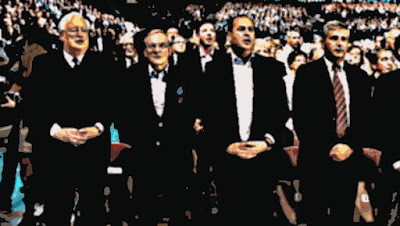die Lust der Fische theory of fish mind
»Chuang Tzu und Hui Tsu wandelten zusammen auf einem Uferdamm am Hao-Fluss.
Da sagte Chuang Tzu: "Sieh doch die Fische herauskommen und sich tummeln. Das ist
die Lust der Fische."
Hui Tsu erwiderte: "Du bist doch kein Fisch. Woher willst Du da die Lust der Fische kennen?" Chuang Tzu sprach: "Du bist nicht ich. Woher also weißt Du, dass ich nicht von der Lust der Fische weiß?"
Hui Tsu entgegnet: "Ich bin nicht Du und weiß natürlich nicht, was Du weißt. Aber da Du jedenfalls kein Fisch bist, ist doch klar, dass Du die Lust der Fische nicht kennst."
Darauf entgegnete Chuang Tzu: »Lass uns noch einmal auf den Ausgangspunkt zurückkommen. Du fragtest, woher ich die Lust der Fische kenne. Das zeigt, dass Du schon wusstest, dass ich es weiß, als Du mich fragtest. Ich weiß es von meinem Standpunkt auf dem Uferdamm hier oben über dem
Hao-Fluss."
(nach Chuang Tzu: Complete Works, 188 f.)
in der Einleitung Peter Baumann: Erkenntnistheorie
Da sagte Chuang Tzu: "Sieh doch die Fische herauskommen und sich tummeln. Das ist
die Lust der Fische."
Hui Tsu erwiderte: "Du bist doch kein Fisch. Woher willst Du da die Lust der Fische kennen?" Chuang Tzu sprach: "Du bist nicht ich. Woher also weißt Du, dass ich nicht von der Lust der Fische weiß?"
Hui Tsu entgegnet: "Ich bin nicht Du und weiß natürlich nicht, was Du weißt. Aber da Du jedenfalls kein Fisch bist, ist doch klar, dass Du die Lust der Fische nicht kennst."
Darauf entgegnete Chuang Tzu: »Lass uns noch einmal auf den Ausgangspunkt zurückkommen. Du fragtest, woher ich die Lust der Fische kenne. Das zeigt, dass Du schon wusstest, dass ich es weiß, als Du mich fragtest. Ich weiß es von meinem Standpunkt auf dem Uferdamm hier oben über dem
Hao-Fluss."
(nach Chuang Tzu: Complete Works, 188 f.)
in der Einleitung Peter Baumann: Erkenntnistheorie
DIDGERIDOO - William Barton Meets the Australian Youth Orchestra
Right brain: Didgeridoo is playing
sounds like laughter or cries or...
You may not recon some RULES in this, as a westerner
Your education is aristotalian (A=A, if A the B, A or B..)
consider A = non A at the same or A = very non A
call it irrational
unless you consider that we all fell in a way the same (die Bedingung der Möglichkeit des Gefühls..)
wordless rule
not spoken
but rule
it could be danced
or lived
experienced
not talked
and written
No concrete harmony or Syntax
emotions and feelings
a way of beeing
parallel thinking takes place
multiple infinite circuits fire
You WANT to MOVE
and create
SOMETHING
antecendend to act
your mind flights ahead
Left brain: the Orchestra starts
it has a dirigent (frontal lobe)
with RULES (Noten)
Syntax
Structure
written on text
that can be learned
practised
again and again
till it is a HABITUS
It has acting components (brodman areals, basal ganglia..)
with fixed order A-B-C-..
serial thinking takes place: step-by-step
as a result a result results
you listen and
your mind follows
sounds like laughter or cries or...
You may not recon some RULES in this, as a westerner
Your education is aristotalian (A=A, if A the B, A or B..)
consider A = non A at the same or A = very non A
call it irrational
unless you consider that we all fell in a way the same (die Bedingung der Möglichkeit des Gefühls..)
wordless rule
not spoken
but rule
it could be danced
or lived
experienced
not talked
and written
No concrete harmony or Syntax
emotions and feelings
a way of beeing
parallel thinking takes place
multiple infinite circuits fire
You WANT to MOVE
and create
SOMETHING
antecendend to act
your mind flights ahead
Left brain: the Orchestra starts
it has a dirigent (frontal lobe)
with RULES (Noten)
Syntax
Structure
written on text
that can be learned
practised
again and again
till it is a HABITUS
It has acting components (brodman areals, basal ganglia..)
with fixed order A-B-C-..
serial thinking takes place: step-by-step
as a result a result results
you listen and
your mind follows









